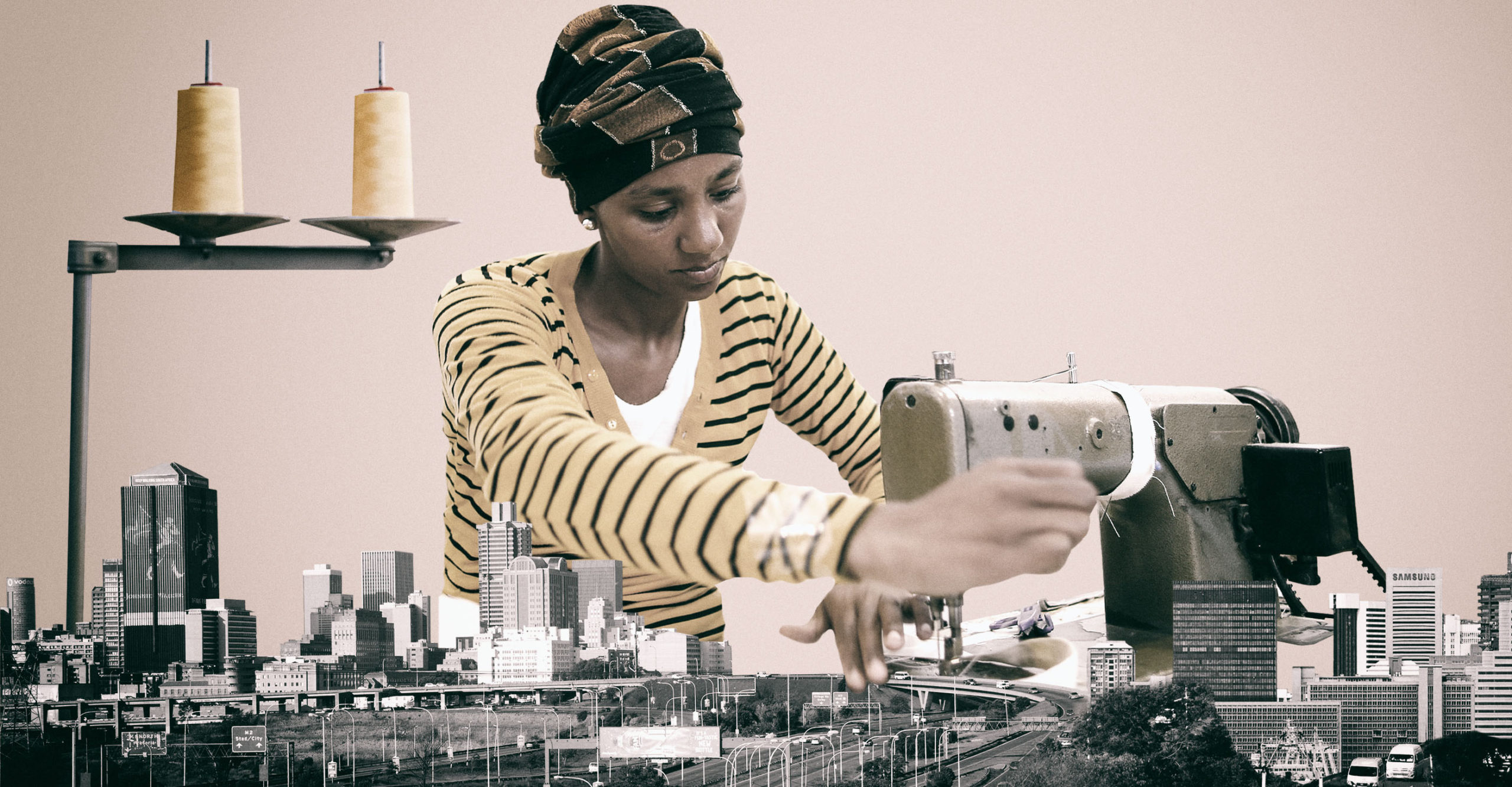
In one of those battles that is almost as regular as complaints that there was no spring this year, the City of Joburg is again at war with informal traders. It is trying to “regularise” people who sell things on the side of the road.
And in the process, as has happened so often in the past, they’ve been taken to court by people who represent the traders.
This time around, it is that familiar protagonist for the City, the Socio-Economic Rights Institute (Seri).
If, like me, you have seen less and less of the Joburg CBD over the past few years, you might be surprised at just how big its markets are.
Back in 2017, that’s more than eight years ago, an important study by Tanya Zack found that the amount of trade in Jeppe alone was about $600-million a year. As Zack and others noted, that was twice the turnover at Sandton City at the time (this presumably includes what Sandton charges for parking).
Considering the sheer size and number of the stalls operating there, if I were the City, I would feel some apprehension about just letting this happen. It means there is a huge amount of activity over which you have very little control.
And while there is part of me that would like the government to just leave people alone, the City absolutely has the right, and the obligation, to manage public spaces. This is for the greater good, for all of us and not just the people currently occupying those spaces.
Also, I think many of us know in our heart of hearts that the situation in the Joburg CBD is allowed in many places, including cities in Nigeria and India. But it would be unthinkable in much of Beijing, New York City or Kigali.
/file/dailymaverick/wp-content/uploads/2025/10/ED_546807-copy.jpg)
I also know what happens if you don’t have any regulation. Imagine your local strip mall. There are probably people who guard cars and manage traffic there. In many cases they pay some rent to the mall to allow them to do it. At first I thought that was quite rough: why should they pay when they’re so obviously desperate?
Then I realised what would happen if they didn’t. One group of people would start guarding cars, and then another would come along and want to do the same thing. So desperate are so many people it is likely they would use violence to get what is essentially a sustainable income.
The same can easily happen in the Joburg CBD: one group of people will be running stalls and another group comes along and uses violence to steal their goods or their turf.
But the City’s real problem is that for most of these traders it is, in fact, the police who steal from them. This has become so common that it’s virtually considered a fact of life.
So much of what the City is saying now is obviously sensible.
It makes sense for people to pay say R50 or R100 to rent a stall. And to require things such as a fire licence and other documents.
But when the instruments of that policy, the police, have such a long track record of stealing from traders, and taking bribes from them, then there is no way this can happen without a fight.
And in the end the City is its own worst enemy here.
I’m sure officials will stand by their police service, and claim that anyone who has had anything stolen must bring proof. Which, of course, is impossible to do.
But I also think we need a complete rethink about how we view the informal sector.
/file/dailymaverick/wp-content/uploads/2025/10/ED_546799-copy.jpg)
Two weeks ago, Standard Bank published a major report showing that about 80% of businesses in township areas were not registered. While there can be lots of wailing and gnashing of teeth at this, the real reason sticks out like the Ponte clad in tasteless online gambling advertising:
Businesses get nothing from the government for registering. Nothing at all. Zilch. Nada.
If they’re lucky it will just be time wasted in a queue.
So often the government seems to make it its business to get in the way of enterprise.
If I were running a stall in Joburg that’s how I would see the City right now: “I want to earn a living, I am earning a living here, I have networks around me that work for me, NOW JUST GET OUT OF MY WAY!”
/file/dailymaverick/wp-content/uploads/2025/10/10993080.jpg)
I fear that all of the tensions involved in this are so unresolvable that, in the end, the City will back off a little, and the traders will carry on, much as before.
And then at some point some official will decide to have another go, Seri will dust off its last application and a judge on Pritchard Street will heave a heavy sigh.
Just as you get the first scent of blossom that tells you non-spring is coming. DM





 Illustrative image | Sources: EPA / Nic Bothma | Flickr / Paul Quinn
Illustrative image | Sources: EPA / Nic Bothma | Flickr / Paul Quinn